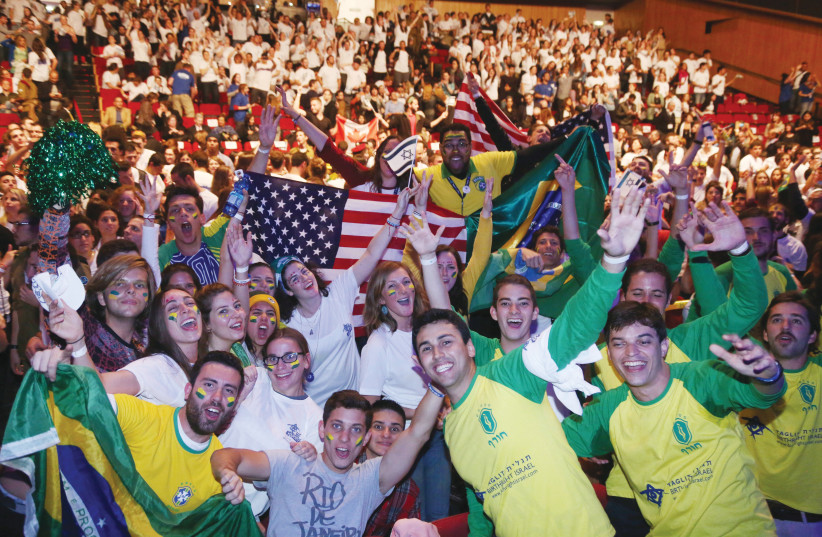Amid all the divisiveness of and commotion over the judicial reform and protests in Israel, the fact that this week is Diaspora Week has been largely overlooked. It’s a pity.
No matter what the outcome of the constitutional crisis, the country will need to find a way to continue forward, and ties with Diaspora Jewry are an essential part of that process. No matter what arguments and rifts we have to deal with, we will have to overcome them. The divisiveness within Israel is reflected also in the strained ties with communities abroad, but these, too, need to be fixed.
Under the slogan, “Kulanu am u’le’olam” (#Forever_Am) – We are all one people and forever – the week’s activities are aimed at strengthening Israel’s connection to Jewish communities abroad and include a broad range of educational and social programs. Activities are taking place across the country, including talks (ranging from tackling antisemitism to the Jewish roots of Spider-Man), music, songs, plays, museum tours and movies (the Jerusalem Cinematheque, for example, has a different talk and movie relating to the Diaspora every evening).
At a time of increased antisemitism and the acts of the BDS movement, Israelis need to remember that our fates as members of the Jewish people are intertwined. We should, however, also be careful not to base our relationship only on combating antisemitism together.
Jewish Diaspora is broad and not a monolith
We must also remember that the Jewish Diaspora – half of the Jewish people – live in communities across the globe. Care must be taken not to equate the Diaspora only with Jews in North America, even if they are the majority. Similarly, there are Ashkenazi and Sephardi Diaspora communities, and a range of other special communities with unique customs and traditions, just as the Jewish majority in Israel is not homogeneous. We can learn from the diversity.

Israelis who travel abroad on vacation often do not take the time to get to know local Jewish communities. But people who spend a period of time in the Diaspora, for work, studies or as emissaries, learn to appreciate how their own Jewish identity can be strengthened through the experience. Jews outside of Israel have to deal with special challenges regarding their religious and ethnic identity that Israeli Jews do not face. Learning about these challenges and how to handle them can be mutually beneficial.
In the last year, we have also seen the importance of Israel-Diaspora ties when it came to Jews from Ukraine, Russia and surrounding countries impacted by the war launched by Vladimir Putin. The way Jewish communities around the world and in Israel have acted to help their brethren has been heartwarming.
The ties between Israel and the Diaspora are special. There is a connection that crosses continents, languages and customs. This special affinity needs to be fostered and furthered.
In Israel, the focus over the years has naturally been on the Law of Return and encouraging aliyah. Continuing to help immigration to Israel requires calm and careful thinking about the Law of Return, who is eligible and their links to the Jewish people.
At the same time, Israel also needs to make the switch and accept that the Jews who live in the Diaspora have legitimate communities and concerns. These communities cannot be ignored. While in the past, Israel was dependent to a large extent on these Diaspora communities, the relationship today is far more symbiotic. Israel must help Diaspora communities.
The Jewish people have survived challenges over millennia. Just as we call on Jews abroad to maintain their ties with Israel and make sure to educate the next generation on the importance of those ties, we in Israel must make sure that Israeli Jews realize the importance of those bonds and ensure that schoolchildren are taught about them.
It is good to have special activities for Diaspora Week; it would be better to keep this special relationship in mind year-round. However difficult the times, however serious the political divides both in Israel and abroad, we are one people. One family. That’s the thought to keep in mind, particularly as we approach Passover, when we recall the Exodus from Egypt and our joint history.
